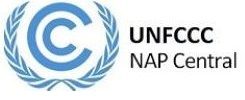
- Development of methods and tools for the elements of the NAP process based on the NAP technical guidelines;
- Bilateral support for partner countries;
- Participation in multilateral for a/global discussions on NAPs.
- NAP Align (Aligning NAP processes to development and budget planning) provides practical recommendations on how to integrate adaptation to climate change into a country’s planning and budgeting system.
- The Stocktaking for National Adaptation Planning (SNAP) Tool helps in assessing a country’s current national adaptation planning capacities and in identifying strategic goals for NAP that feed into the preparation of a country specific NAP Roadmap.
- The Guidebook on Developing National Adaptation Monitoring and Evaluation Systems aims to guide developing countries in formulating an appropriate M&E system for adaptation through informed decision on the purpose, design, operationalisation, and use of results. Given its close linkages with the broader development and M&E context in a given country, the Guidebook shows the various nuances to consider in establishing an M&E system for adaptation and likewise recognizes that there is no one-size-fits all approach to national M&E of adaptation.

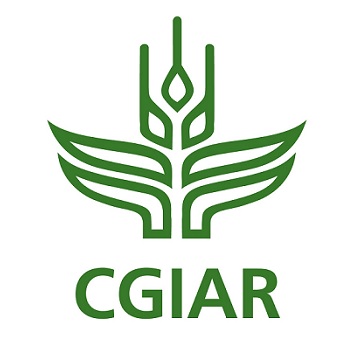
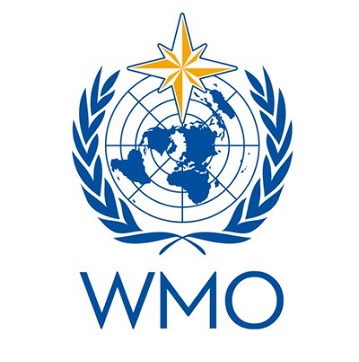
The World Meteorological Organization (WMO) is a specialized agency of the United Nations. It is the UN system’s authoritative voice on the state and behavior of the Earth’s atmosphere, its interaction with the oceans, the climate it produces and the resulting distribution of water resources.
WMO has a membership of 191 Member States and Territories (on 1 January 2013). It originated from the International Meteorological Organization (IMO), which was founded in 1873. Established in 1950, WMO became the specialized agency of the United Nations in 1951 for meteorology (weather and climate), operational hydrology and related geophysical sciences. WMO facilitates the free and unrestricted exchange of data and information, products and services in real- or near-real time on matters relating to safety and security of society, economic welfare and the protection of the environment. It contributes to policy formulation in these areas at national and international levels.
AREAS OF SUPPORT
WMO promotes cooperation in the establishment of networks for making meteorological, climatological, hydrological and geophysical observations, as well as the exchange, processing and standardization of related data, and assists technology transfer, training and research. It also fosters collaboration between the National Meteorological and Hydrological Services of its Members and furthers the application of meteorology to public weather services, agriculture, aviation, shipping, the environment, water issues and the mitigation of the impacts of natural disasters.
PROGRAMMES ON NAPs
World Weather Watch (WWW) Programme
The World Weather Watch (WWW) Programme facilitates the development, operation and enhancement of worldwide systems for observing and exchanging meteorological and related observations, and for the generation and dissemination of analyses and forecast products, as well as severe weather advisories and warnings, and related operational information. The activities carried out under this Programme collectively ensure that Members have access to the required information to enable them to provide data, prediction and information services and products to users.
Global Atmosphere Watch Programme (GAW)
The rationale for the Global Atmosphere Watch (GAW) Programme is to meet the need to better understand and control the increasing influence of human activity on the global atmosphere.
World Weather Research Programme (WWRP)
WWRP is a comprehensive programme which contributes to improving public safety, the quality of life, economic prosperity and environmental quality by serving as an international mechanism for: • Advancing the science of weather-related research with a particular focus on advancing our knowledge of high-impact weather, improving the prediction of these events and measuring the improvements in prediction; • Advancing our understanding of how society is impacted by and reacts to high-impact weather and forecasts of these events in order to improve the utilization of and response to weather information; • Contributing to the advancement of the science of broader environmental prediction through partnerships and collaborative multidisciplinary research; • Promoting and facilitating the transfer of these research advances into the operational practice at NMHSs and among their end-users; • Serving as the weather research underpinning for WMO efforts related to the WMO Natural Disaster Reduction and Mitigation Programme, operational weather prediction, use applications, and thereby contributing to relevant UN Millennium Goals.
CONTACT INFORMATION
The World Meteorological Organization (WMO)
https://www.wmo.int/pages/index_en.html
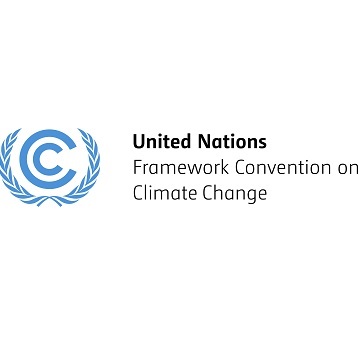
LDC Expert Group

The Adaptation Committee (AC) was established by the Conference of the Parties to promote the implementation of enhanced action on adaptation in a coherent manner under the Convention, inter alia, through: providing technical support and guidance to the Parties; sharing of relevant information, knowledge, experience and good practices; promoting synergy and strengthening engagement with national, regional and international organizations, centres and networks; providing information and recommendations, drawing on adaptation good practices, for consideration by the COP when providing guidance on means to incentivize the implementation of adaptation actions, including finance, technology and capacity-building; and considering information communicated by Parties on their monitoring and review of adaptation actions, support provided and received.
The Adaptation Committee provides guidance on NAPs through its NAP Task Force.
The NAP TF was established at the fourth meeting of the Adaptation Committee (AC) with the aim of to further support developing countries seeking to formulate and implement NAPs and it was welcomed by the COP at its nineteenth session (decision 16/CP.19) with the following objectives:
(a) To serve as the panel within the AC that continuously looks at issues related to NAPs;
(b) To liaise with the Least Developed Countries Expert Group (LEG), upon request, in support of its work with regard to NAPs in the least developed countries (LDCs), ensuring consistence and supplementarity of mandates;
(c) To identify opportunities in which activities can also be employed by non-LDCs;
(d) To follow up on the operationalization modalities identified for the support of non-LDCs’ NAPs under the guidance of the Chair and the Vice-Chair of the AC;
(e) To report to the AC at each of its meeting on issues identified and proposed activities to support the NAP process for all eligible developing countries.
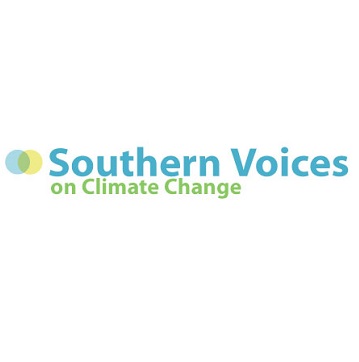
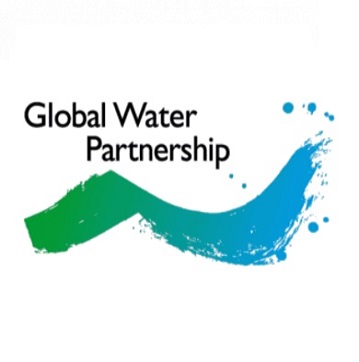
The Global Water Partnership is an intergovernmental organisation comprised of 13 Regional Water Partnerships (RWPs) and 86 Country Water Partnerships (CWPs), with the mission to advance governance and management of water resources for sustainable and equitable development. It is a global network including over 3000 partners ranging from government institutions (national, regional and local), intergovernmental organisations, international and national non-governmental organisations, academic and research institutions, companies, and service providers in the public sector. Together with the partners, GWP helps countries to connect water resources planning and operations at different scales – transboundary, regional, basin, national, and local – so that actions are coherent and sustainable.
ACTIVITIES/PROGRAMMES RELEVANT TO NAPS
GWP is responding to the climate change challenge through the Global Water, Climate and Development Programme (WACDEP) which includes a portfolio of programmes and projects that aim to build climate resilience through better water management. The overall objective of the WACDEP is to support integration of water security and climate resilience in development planning and decision making processes, through enhanced technical and institutional capacity and predictable financing and investments in water security and climate change adaptation. The WACDEP targets over 60 countries in Africa, Asia, Europe, Latin America, and the Caribbean, and it is aligned with the objectives of the process to formulate and implement National Adaptation Plan.
The following programmes are included under the WACDEP umbrella:
- The WACDEP in Africa with focus on putting in place investments for water security and climate resilience, jointly implemented with the AU and African Ministers Council on Water (AMCOW);
- The Regional WACDEPs in Asia, Latin America, the Caribbean, and Europe, which are modelled on the WACDEP in Africa but developed with regional context and ownership;
The Associated Programme on Flood Management (APFM), a joint initiative of the World Meteorological Organization (WMO) and GWP promoting the concept of Integrated Flood Management (IFM); - The WMO-GWP Integrated Drought Management Programme (IDMP) focusing on promoting better scientific understanding and inputs for drought management for enhancing drought resilience;
- The Deltas Climate Resilience Programmes for enhancing climate resilience of delta regions. “Enabling Delta Life” is a joint project with the Delta Alliance, supported by the NetherlandsMinistry of Development Cooperation.
- By supporting activities for improved management of water resources, for example through drought and flood management, the WACDEP contributes to enhanced resilience to climate change, aligning actions to support the implementation of the Paris Agreement and the Sustainable Development Goals.
Specific examples of activities undertaken in the past years that are relevant to climate change adaptation and NAPs are:
- Capacity building and knowledge sharing for national and regional level stakeholders on project preparation related to water security and climate resilience, with GWP Central Africa;
- Workshop on Integrating Water Security in the National Adaptation Plans (NAPs), with GWP Central America;
- Investment prioritization for water security and climate resilience in the Kagera River Basin, with GWP Eastern Africa;
- Development of a Regional Framework for Investment for Climate Resilience and Water Security (CReWSIP), with GWP Caribbean;
AREAS OF SUPPORT FOR COUNTRIES
GWP specific support to countries in the process to formulate and implement NAPs takes place through the collaboration with the UNDP-UNEP NAP-Global Support Programme (NAP-GSP). The NAP-GSP support Least Developed Country Parties and non-LDCs to advance on the formulation and implementation of NAPs, bringing greater focus and coordination to country-led efforts in disaster risk reduction and climate change adaptation. GWP support especially with expertise on water resources and climate change adaptation, and the country support is based on three main pillars: i) institutional support; ii) technical support; iii) knowledge brokering.
Contact information
Mr. Alex Simalabwi
GWPSA Executive Secretary
Head-GWP Africa Coordination
Global Lead –Water Climate Development
Hatfield Gardens, Block A Pretoria
333 Grosvenor Street
South Africa
Tel: +27 12 430 2121
Mobile: +27630573688
Website: http://www.gwp.org/
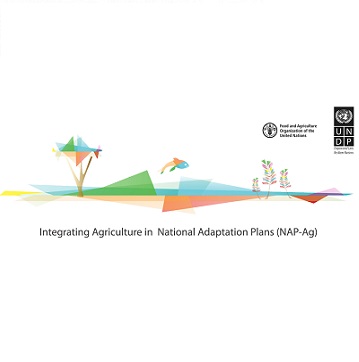
The FAO has three main goals: the eradication of hunger, food insecurity and malnutrition; the elimination of poverty and the driving forward of economic and social progress for all; and, the sustainable management and utilization of natural resources, including land, water, air, climate and genetic resources for the benefit of present and future generations.
AREAS OF SUPPORT
CONTACT INFORMATION
Food and Agriculture Organization of the United Nations










